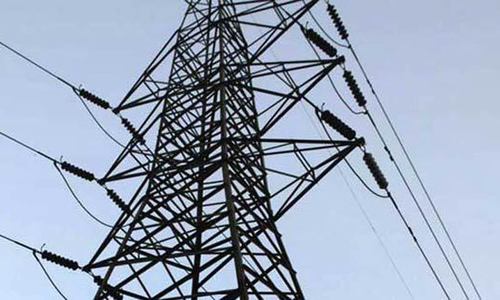
ISLAMABAD: The government confirmed on Thursday that power sector’s circular debt went past Rs2.306 trillion as of Nov 30, 2020, up by Rs156 billion over the first five months of the current fiscal year, at a rate of Rs31.2bn per month.
With this on the table, a meeting of the Cabinet Committee on Energy (CCoE) presided over by Planning and Development Minister Asad Umar was also informed by the Ministry of Information Technology that a meterless smart metering system successfully tested and proved on ground was not being adopted by power distribution companies.
The meeting was told that a bulk share of the increase in circular debt was poor governance in the public sector itself. It was noted that Rs156bn addition in circular debt included non-payment of budgeted and unbudgeted subsidy, delayed payments on account of interest to independent power producers (IPPs), other mark-ups, pending price adjustment on account of quarterly and monthly adjustments and non-payments by K-Electric.
The meeting was informed that on the basis of existing tariff notifications, a total of Rs317bn subsidy was required, but the Ministry of Finance had budgeted only Rs144bn, leaving an unbudgeted subsidy gap of Rs177bn.
Cabinet body told that poor governance in public sector mostly responsible for surge
The Power Division reported that about Rs31bn debt flowed from operations of the distribution companies, Rs65bn on account of unpaid subsidies, Rs34bn higher interest due to non-payments of dues to the IPPs, Rs33bn mark-up on Power Holding Company, Rs103bn in pending generation cost and Rs34bn non-payments by K-Electric. As such total circular debt actually increased by Rs300bn, but prior-year adjustments of Rs145bn in consumer tariff reduced the circular debt build-up to Rs156bn in five months.
The Power Division said that a circular debt management plan was being implemented to minimise its build-up. It said the total circular debt increased by Rs538bn during the fiscal year 2019-20 at a rate of about Rs45 per month. During the July-November 2019-20 period, circular debt increased by Rs179bn at a rate of Rs36 per month, while it slightly reduced to Rs156bn during July-November 2020-21 at a rate of Rs31.2bn per month.
The IT ministry put on record that it had been repeatedly asking the Power Division since November 2018 to adopt Electrocure — a meterless smart metering system orientation developed by Ignite (a government company) — for “reducing chronic issue of line losses, power supply and identifying electricity theft”.
The equipment was put to use and “successfully implemented in Military Engineering Services (MES) Rawalpindi and Peshawar Electric Supply Company (Pesco)”.
A reduction in technical loses of up to 15 million per month was achieved at MES, helping the GHQ in the planning of solar plant installation through feeder monitoring system reducing 30-40pc extra plant capacity costs.
Also at Pesco, initial statistics from Karkhano and Ring Road feeders on average one million watt hours per 10 transformers per day had been diagnosed. On average 20 meters have been replaced with a single Electrocure unit, bringing smart metering price per consumer to $15 (smart metering cost internationally is more than $200 with turnkey solution).
The meeting directed the Power Division and IT ministry to hold further deliberations on the proposed metering design and submit a joint proposal to the CCoE, according to an official statement.
The Petroleum Division proposed setting up of a committee comprising the secretary of petroleum, provincial secretaries of energy and industries and a senior official of Sui Southern Gas Company for streamlining the process for industrial gas connections in Balochistan. The meeting approved the committee and directed that its recommendations be submitted to the CCoE within one month.
The meeting was attended by Finance Minister Abdul Hafeez Sheikh, Special Assistant to the Prime Minister on Petroleum Nadeem Babar, Adviser to the Prime Minister on Commerce and Industries Abdul Razak Dawood and officials from various divisions.
Published in Dawn, January 8th, 2021















































